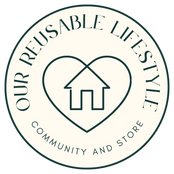Parabens are synthetic compounds commonly used as preservatives in cosmetics, personal care products, and some processed foods. Due to their structural similarity to Estrogen, they can mimic the hormone's activity in the body. Elevated Estrogen levels have been associated with an increased risk of breast cancer. Research indicates that parabens can bind to estrogen receptors and may promote the proliferation of certain breast cancer cells. For instance, a study published in the Journal of Applied Toxicology found that parabens could stimulate the growth of MCF-7 human breast cancer cells in vitro.
Given these findings, some health organizations recommend a precautionary approach. Breast Cancer UK advises limiting exposure to parabens by reducing the use of cosmetics and beauty products that contain them.
By choosing natural, paraben-free products, individuals can minimize potential risks associated with these synthetic compounds.
It's important to note that while laboratory studies have shown that parabens can mimic estrogen and promote breast cancer cell growth, the evidence from human studies is still inconclusive. The U.S. Food and Drug Administration (FDA) states that there is currently no reason for consumers to be concerned about the use of cosmetics containing parabens.
However, for those who prefer to err on the side of caution, opting for paraben-free products is a reasonable choice.
In summary, while definitive evidence linking parabens to increased breast cancer risk in humans is lacking, their estrogen-mimicking properties observed in laboratory studies warrant consideration. Choosing natural, paraben-free products can be a proactive step toward reducing potential risks and promoting overall health.




